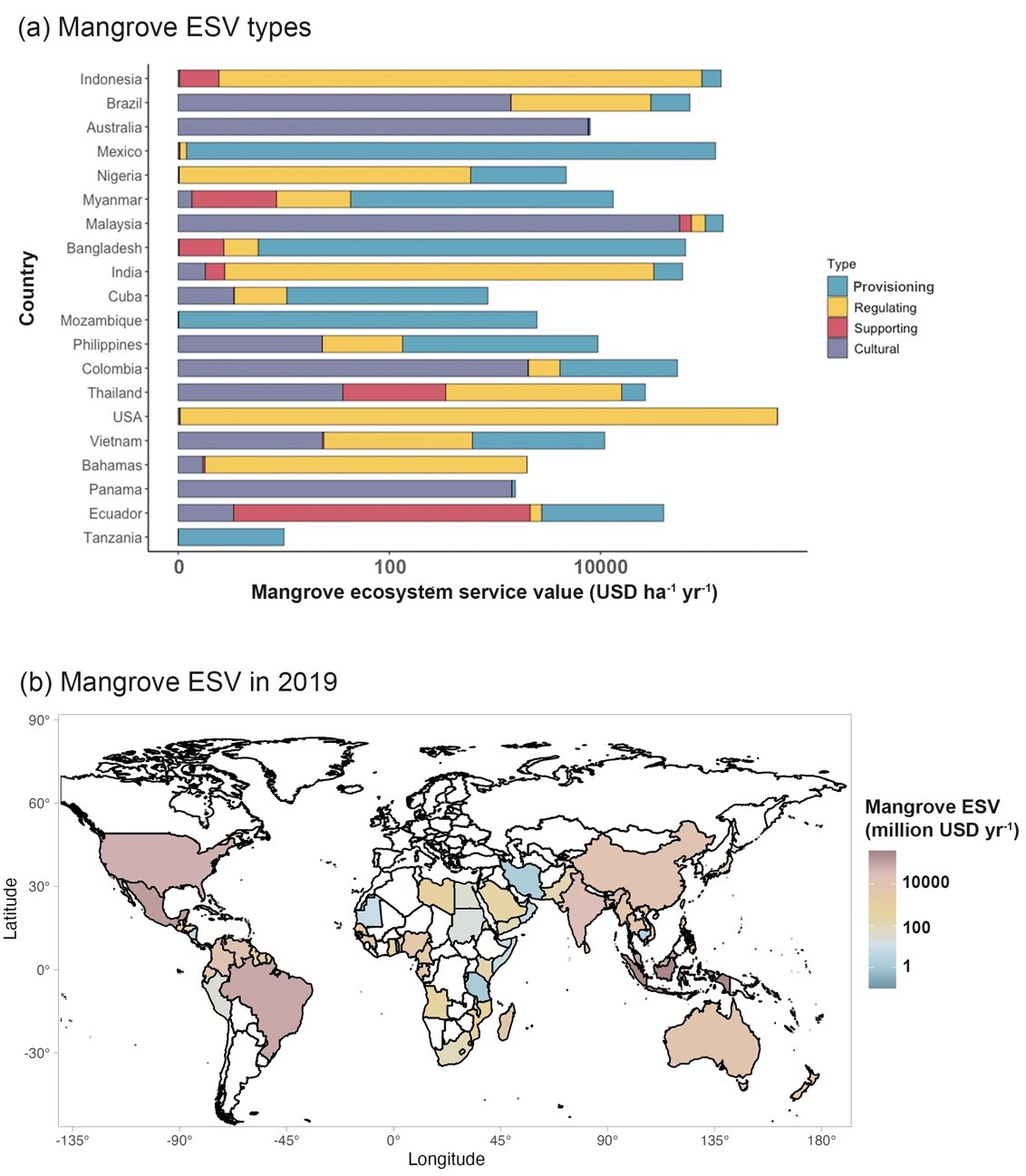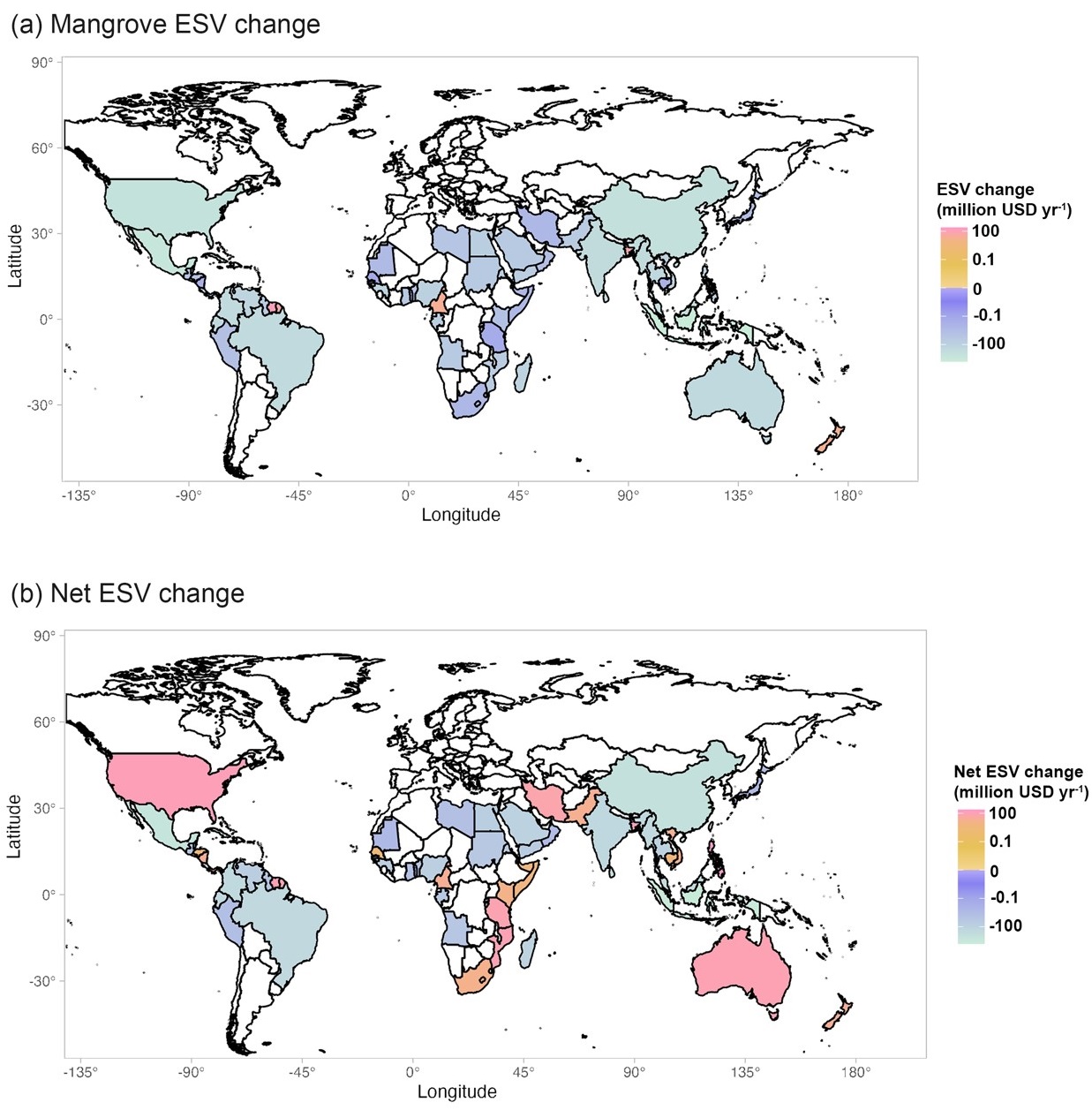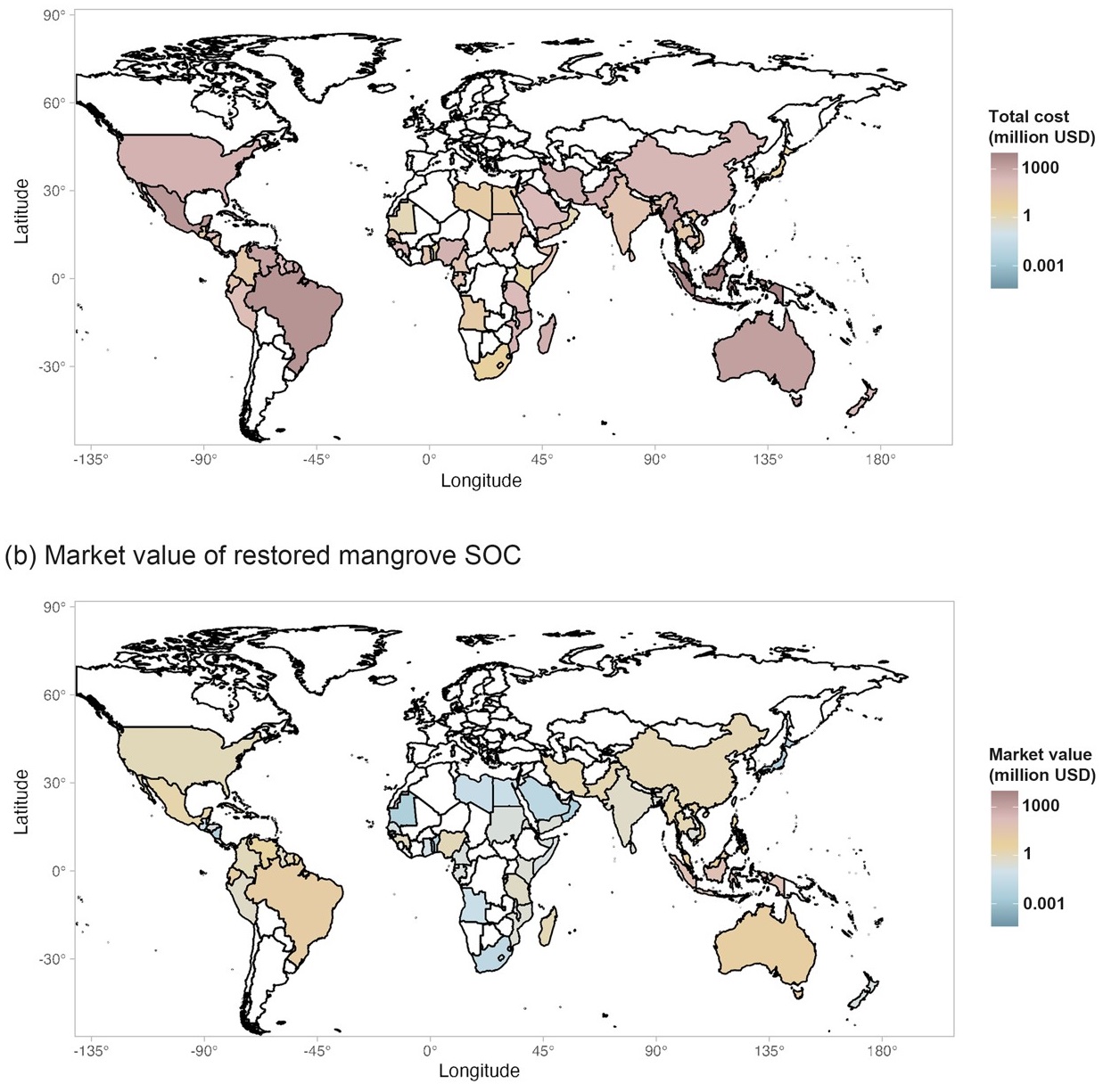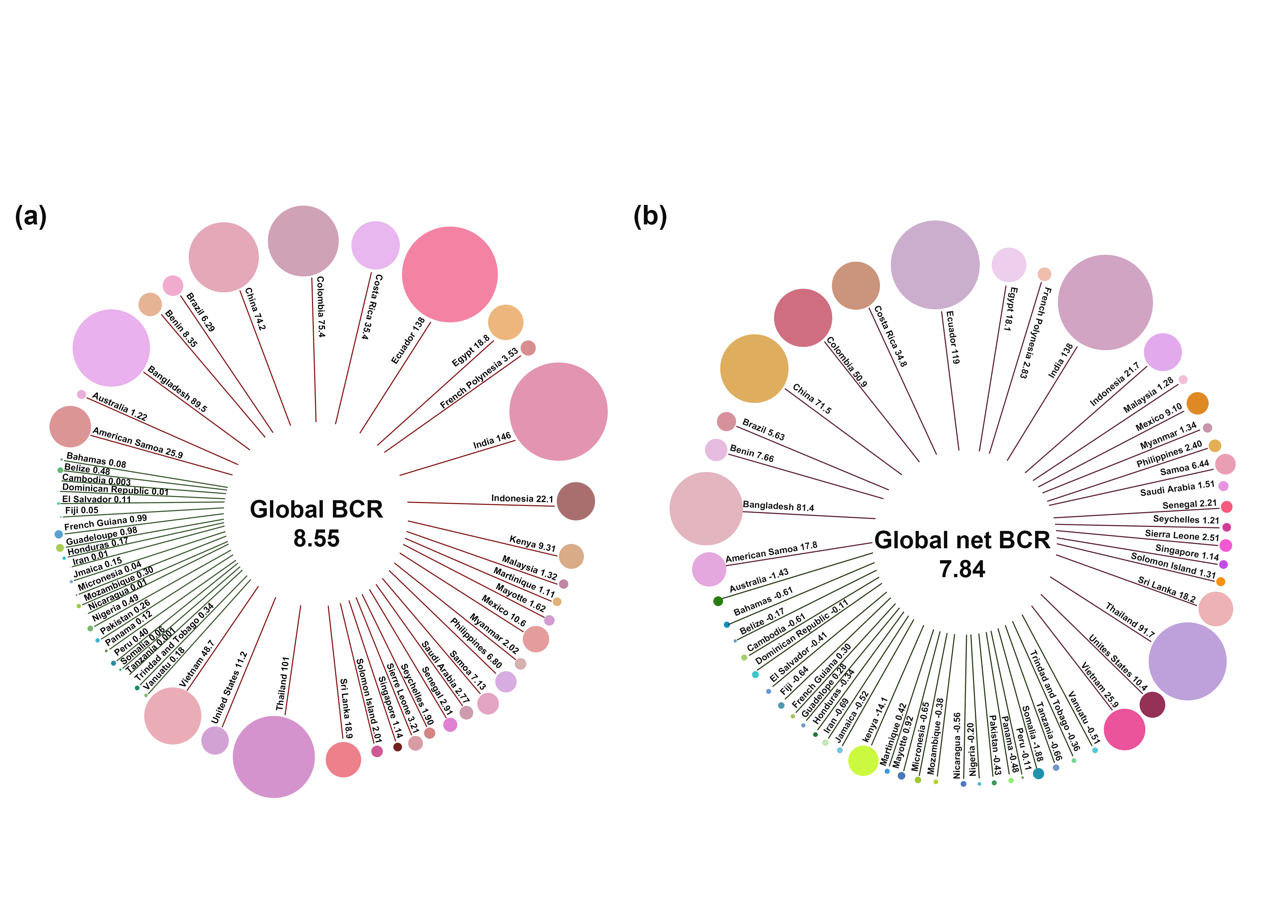Chinese Academy of Sciences Study: Global Mangrove Restoration Potential is Huge, Economic Benefits are Significant
A research team from the South China Botanical Garden of the Chinese Academy of Sciences has recently released a groundbreaking study on global mangrove conservation and restoration. The findings highlight not only the ecological importance but also the significant economic value of mangrove ecosystems.
Mangroves, known as one of the most unique ecosystems on Earth, are often referred to as the "rainforests of the sea." According to the study, the ecosystem service value (ESV) of global mangroves was estimated at $894 billion in 2019, with regulating services and provisioning services accounting for 57.4% and 19.7% of the total, respectively. These figures underscore the critical role of mangroves in climate regulation, biodiversity conservation, and providing fishery resources.
However, the study reveals that between 1996 and 2019, global mangrove loss resulted in a net ESV loss of approximately $29.2 billion (Figure 1). This indicates that the disappearance of mangroves not only causes severe environmental damage but also leads to significant economic losses.
The good news is that the return on investment for mangrove restoration is extraordinary. Over the next 20 years, global mangrove restoration is expected to require investments ranging from $4 billion to $52.1 billion, but it could generate net ecosystem service value benefits of $231 billion to $725 billion. Additionally, through blue carbon trading, sequestered 19.4 Tg C could yield additional revenue of $69 million to $236 million (Figure 2).
The research team also noted that the global benefit-cost ratio (BCR) for mangrove restoration projects ranges from 6.35 to 15, demonstrating an extremely high return on investment. This suggests that protecting and restoring mangroves is not only vital for environmental protection but also a financially viable endeavor.
The study provides policymakers, environmental organizations, and the public with critical scientific evidence, emphasizing the urgency and importance of mangrove conservation and restoration. The findings also fill existing knowledge gaps and offer new perspectives for global environmental protection strategies.
The study were published online in Nature Communications (https://doi.org/10.1038/s41467-025-56587-2). ZHANG Jingfan, a doctoral student from the Coastal Zone Ecosystem Processes and Environmental Health Research Group at the South China Botanical Garden, is the first author of the paper. Professor WANG Faming, the head of the research group and director of the Xiaoliang Station, is the corresponding author. This study was funded by the National Natural Science Foundation of China, the Alliance of National and International Science Organizations for the Belt and Road Regions, the National Key R&D Program of China, the CAS Youth Innovation Promotion Association, and the MOST Ocean Negative Carbon Emissions project.

Figure 1. Different categories of mangrove ecosystem service value (ESV) in 2019.(Imaged by ZHANG et al)

Figure 2. Ecosystem service value (ESV) changes in mangrove ecosystems.(Imaged by ZHANG et al)

Figure 3. The cost and economic returns of mangrove restoration.(Imaged by ZHANG et al)

Figure 4. Country-level cost-benefit analysis of mangrove restoration.(Imaged by ZHANG et al)
File Download: